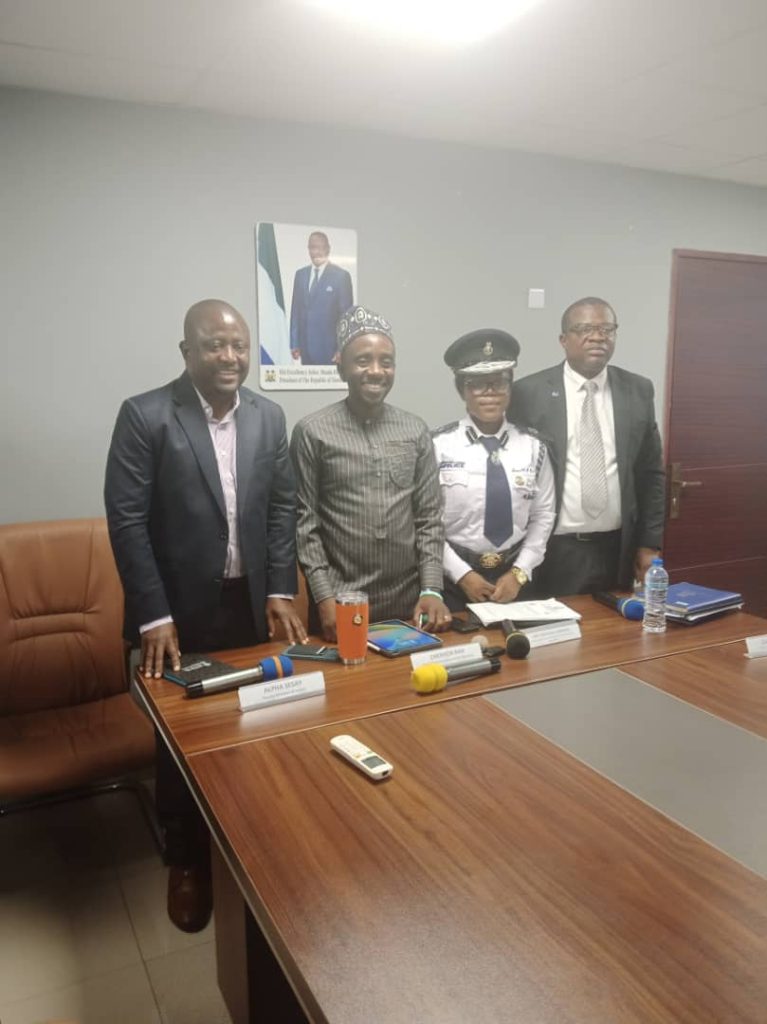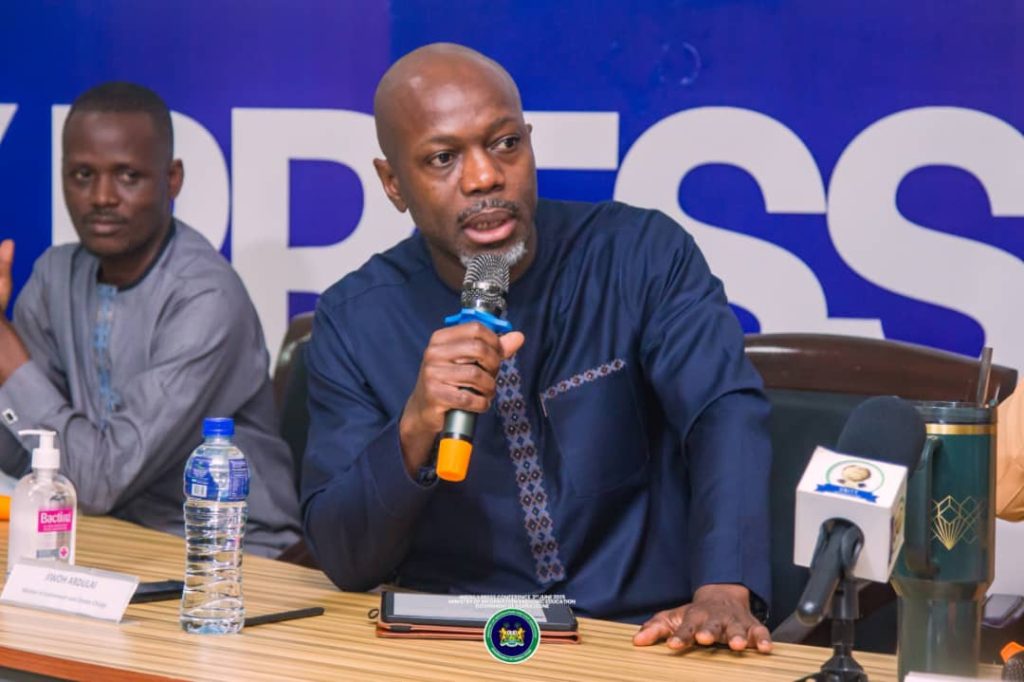FIA Focuses on Bank Compliance, Strengthens Financial Security

By Abdul Rahman Bah
At a recent press briefing held at the Ministry of Energy’s Electricity House on Siaka Stevens Street, Freetown, the Ministry of Information and Civic Education provided a comprehensive update on critical national issues. The event, which drew considerable attention from local media, featured David Borbor, the Director General of the Financial Intelligence Agency (FIA), who shared vital insights into the agency’s ongoing efforts to combat financial crimes, including money laundering and terrorist financing.
In his opening remarks, Mr. Borbor expressed appreciation to the media representatives in attendance, underscoring their crucial role in amplifying public awareness about the FIA’s work. He emphasized the importance of collaboration between the agency and the media to ensure that the public remains well-informed about the country’s efforts to tackle financial crimes.

Mr. Borbor provided an in-depth look at the evolving role of the FIA, noting that the agency’s focus has now expanded to include the monitoring of proliferation financing—the financial support for the development of weapons of mass destruction. This expansion reflects Sierra Leone’s commitment to adhering to international standards and its active role in global efforts to curb the financing of both terrorism and the illegal proliferation of dangerous weapons.
The FIA Director General also highlighted Sierra Leone’s progress in meeting international anti-money laundering (AML) standards, particularly those set out by the Financial Action Task Force (FATF). Following an evaluation in 2019, Sierra Leone was found to be fully compliant in four key areas and largely compliant in sixteen others. While the country still has areas to improve, Mr. Borbor reassured the public that the government is actively working to enhance compliance and address any shortcomings identified in the assessment.
“We are committed to ensuring that Sierra Leone meets and exceeds the standards set by the FATF,” Borbor stated. He also pointed out that in addition to addressing money laundering and terrorism financing, the FIA’s efforts include focusing on sectors such as banking institutions, non-profit organizations, and the precious minerals sector—all of which are vulnerable to exploitation for illicit financial activities.
One of the key strategies discussed by Mr. Borbor was the enhanced collaboration between the FIA and other government bodies. He detailed how the agency is working alongside the Ministry of Finance, the Ministry of Justice, and various regulatory authorities to strengthen the country’s legal and operational frameworks for combating financial crimes. This cooperation is aimed at aligning Sierra Leone’s national systems with FATF recommendations, ensuring that the country has robust systems in place to detect and prevent financial crime.
In addition, Borbor noted that the FIA is actively preparing to engage with international mentors as part of its efforts to join the Egmont Group, a global network of Financial Intelligence Units (FIUs) dedicated to fighting financial crimes. Gaining entry into this prestigious network would significantly enhance Sierra Leone’s ability to share intelligence and collaborate with other countries on financial crime investigations.
One of the most critical sectors identified by Mr. Borbor as vulnerable to financial crimes was the precious minerals sector, where illegal activities such as money laundering are common. The FIA is working closely with regulatory bodies to strengthen compliance measures and reduce the risks of exploitation in this area.

In a noteworthy development, Mr. Borbor announced that for the first time in Sierra Leone’s history, the Anti-Corruption Commission (ACC) has formally charged a bank for financial misconduct. This marks a significant milestone in the country’s efforts to hold financial institutions accountable for their actions, and Borbor expressed hope that this would send a strong message to the private sector about the importance of compliance with anti-corruption and anti-money laundering regulations.
The FIA’s proactive stance against illegal financial operations was also highlighted in the briefing. Borbor revealed that the agency has been quick to identify and freeze assets associated with illicit financial schemes. The funds from these frozen accounts are then allocated to liquidators who ensure that legitimate claimants are reimbursed accordingly.
In another significant case, Mr. Borbor discussed the fraudulent operation involving a scheme known as “Super Advertisers,” which had used a mobile money platform to lure investors with promises of high returns. The scheme, orchestrated by a Chinese national, has been under investigation by the FIA, supported by intelligence-gathering efforts that led to police involvement. The investigation is ongoing, and further actions are expected as authorities continue to scrutinize the case.
“We are committed to protecting Sierra Leone’s financial systems from exploitation by criminals,” Borbor stated. “We will continue to collaborate with all relevant agencies and international partners to ensure that those who engage in illegal financial activities are held accountable.”
In closing, Mr. Borbor reiterated the importance of public awareness and cooperation in the fight against financial crime. He urged citizens to report suspicious financial activities and to remain vigilant in recognizing the signs of fraudulent schemes. The FIA, he stressed, will continue to work tirelessly to safeguard the country’s financial integrity and to ensure that Sierra Leone remains in good standing with international anti-money laundering standards.
As Sierra Leone makes strides toward enhancing its financial crime prevention framework, the collaboration between the government, financial institutions, and the media will be crucial in ensuring that the country’s financial system remains secure, transparent, and accountable.





